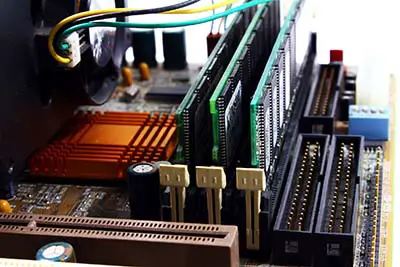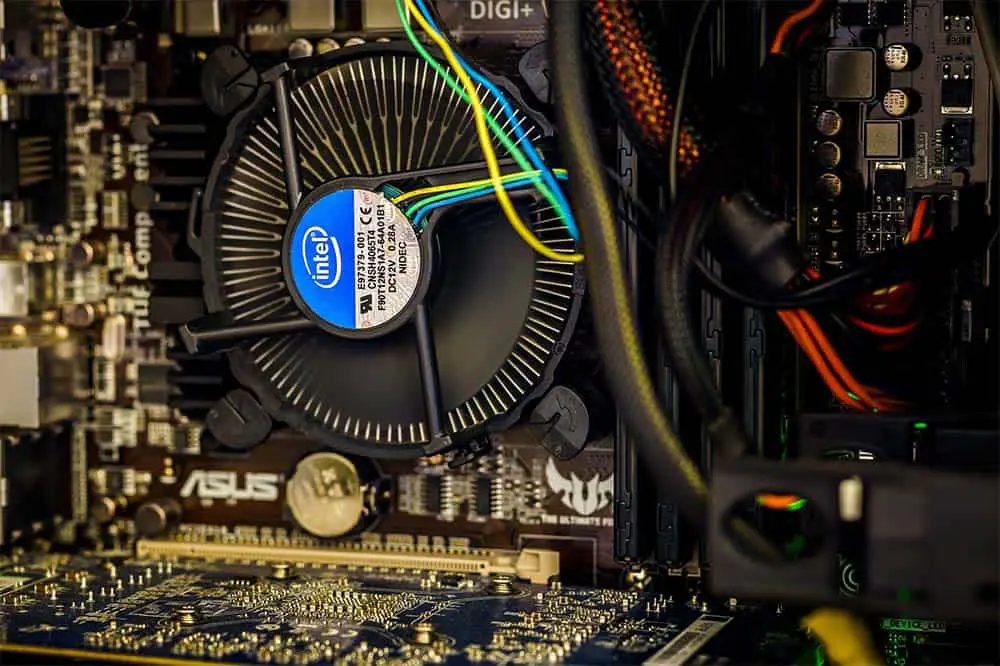The life cycle of a desktop computer varies with how it’s used. But for how long should a desktop computer last for the majority of people?
For a full understanding of this discussion scope, we’ll explore the two most popular uses of desktop computers – personal and business.
Table of Contents
- How long should a desktop computer last?
- Compatibility issues with hardware upgrades
- Out-of-date Security
- Noisy Fans
- When your computer screams outdated hardware
- It costs more to repair than replace
- It takes forever to load applications
- Expensive hardware repairs
- Outdated Operating System
- Multitasking issues
- The computer takes too long to start up and shutdown
- Tips to keep your desktop computer in tip-top shape
- After getting a new desktop computer, what next?
- Wrap up
How long should a desktop computer last?
For personal users, the decision to change their desktop to a modern computer is strictly personal.
The useful lifespan of a traditional desktop computer is affected by various factors like technological relevance, reliability, and a host of other reasons best known to individual users.
Here, the frequency and intensity of use are major factors, and except for the ones that use their computer for long-hour daily business, personal users barely use a desktop computer as frequently as years ago.
The smartphone proliferation has placed computers in people’s palms and has thus reduced the reliance on desktops for the majority of the time.
Most people prefer to use their iPhone or Android devices on day-to-day tasks.
If someone only uses their desktop computer sparingly or as a second or third-choice option for daily computing, their desktop computer can easily last a decade.
The exception is if it is a gaming pc.

Worthy of note is that the price of a PC build can greatly influence how soon an individual might think of changing their machine.
If you bought your desktop at a high price, you are likely to keep it for longer until you feel you have adequately recouped your initial investment by how long you use it.
For businesses, on the other hand, the need to change a desktop computer may arise to either keep up with their IT hardware budget for a specific period or to update their computer to the latest model to keep up with their competition.
As desktop computers age, reliability and security issues arise, and the only entity that mostly feels the pressure to upgrade is a business.
A business has to ensure its computer systems are up-to-date and in good shape to keep the business at a competitive advantage over other businesses.
So, based on these, it is safe to draw the conclusion that desktop computers typically last between three and five years on average for businesses while personal users change their desktop computers subjectively, barring damages to the hardware.
Not sure how long do PCs last? Here’s a look at ten telltale signs to replace your computer.

Compatibility issues with hardware upgrades
These days, desktop computers perform better with advanced hardware components, and in most cases, the first step to boosting a computer’s power is by upgrading the RAM and, even better, replacing the conventional hard drive with a modern solid-state drive (SSD).
If you decide to switch things a notch higher by upgrading the graphics card (or video card), the CPU, or motherboard, you might experience some compatibility issues.
These compatibility issues might extend to having most or all your computer’s components replaced, which may run into high costs.
If you have to spend too much on upgrades or deal with hardware compatibility problems, it’s time to change your desktop PC to a newer one.
Out-of-date Security
Security is one important thing to consider in your desktop computer as newer operating system versions get released from time to time.
If your current computer hardware does not work with newer versions of an operating system, then support for your desktop computer has ended, and it may be time to look for a new one.
Even if they are compatible, the latest security measures should also be factored in. Newer computers use biometric security, which may not be present in older models.
If you regard security as an important matter, it may be time to upgrade your machine.
Noisy Fans
An aging computer always shows signs that it’s getting old. One of such signs is the cooling fan making loud noises even when the computer is executing low-intensity tasks.
Your computer will often show it when you run the latest application or operating system versions that may not be suitable for its hardware.
It is when this happens that the fans make loud noises, which is your cue to change the computer.
The more modern a computer is, the more energy-efficient it will be, and it will generate less heat.
When your computer screams outdated hardware
These days, computer makers combine aesthetics with functionality without leaving one out for the other. Computers are getting smaller as the years roll by, and it all boils down to the hardware.
You don’t want a huge device taking up a lot of space and too long to set up.
Even your team will be happier and more productive to have computers that quickly open up and get their tasks done in a short time.

It costs more to repair than replace
Repairing a faulty computer might seem more cost-effective in the beginning, but over time, the costs add up.
Repeated and continued repair might end up costing more than the cost of a replacement at some point.
At that point, it’s advisable to just replace the computer altogether rather than bear the cost of lost productivity and support.
It takes forever to load applications
For an old computer, it is usually hard to load applications due to compatibility issues. Applications are regularly updated to work with the latest computer hardware.
If you have a computer system with old hardware, the latest versions of most applications may not work.
Before you install any application on your computer, make sure you check the compatibility with your desktop computer’s hardware.
You should take a look at the minimum component requirement before running any software.
Expensive hardware repairs
Things sometimes happen beyond our control, and damages occur. It may be a cracked screen, faulty mouse, or dead keyboard.
Some simple fixes like buying a new mouse won’t cost a lot.
However, some repairs cost nearly the price of a new desktop computer, depending on the hardware component being replaced.
In that case, buying a new device is a better alternative to buying any expensive part.
Outdated Operating System
Updating your Windows OS and macOS regularly is part of your maintenance basics. It is non-negotiable as these updates come with the latest operational and security improvements and bug fixes that keep your whole computer system running smoothly.
If your operating system is outdated and your computer does not support the latest one, it’s due for a change.

Multitasking issues
Running multiple tasks and applications simultaneously is one of the major reasons for using computers. Once your computer is unable to fulfill those demands, it might be time to get a new one.
An optimally-performing computer should allow you to switch between open applications without issues.
In most cases, multitasking problems can be fixed easily by increasing the RAM, but in cases where the computer’s hardware can no longer support hardware upgrades, a replacement is inevitable.
The computer takes too long to start up and shutdown
One of the earliest indications that your desktop computer is running on its last legs is if it takes too long to start up or shut down.
In some cases, it could also be that you have too many applications automatically running in the background once you turn on your computer.
Preventing some programs from loading automatically in the background might fix the problem, but in cases of very old computers, you might have to do a little bit more than that.
Tips to keep your desktop computer in tip-top shape
Computer maintenance is a relevant question. Here are some quick tips to keep your machine in the best possible shape no matter how long you own it:
- Protect your desktop computer’s hardware, especially the keyboard and ports, from crumbs and other debris. Also, do not use chemicals or other cleaning materials on the trackpad. Follow the manufacturer’s instructions for cleaning and maintenance.
- Learn about some basic system issues and how to fix them. On your Windows computer, you can free up disk space or carry out advanced storage tasks using Disk Management. For your Mac computer, you can repair system errors and partition your storage drive with Disk Utility.
- Always look out for your battery by observing its temperature. Never let it get too hot and keep it away from moisture.
After getting a new desktop computer, what next?

After taking delivery of your new computer, follow these four steps before settling down to use it;
Install all necessary software
Software ranging from your word processor to design and communication tools is important.
You need them to work and you should install all the necessary ones. Also, make sure they’re working properly.
Check out security features
Before you or anyone else start using their new desktop computer, make sure security software is activated.
You want your computer to have everything it needs to fight any external element or attack.
Upload your files
Get all your existing files and upload them to your new computer.
You need those files to continue working from where you stopped; so, move them back to the new machine.
Customize settings
Settings like font size, screen brightness, theme, etc., are important to the smooth running of your new desktop computer.
Set things up and make your new digital environment as comfortable as possible.
Wrap up
While it’s understandable that you may not be ready to let go of your desktop computer system just yet, you should also be aware that change is constant.
You should know when to get a new machine to make your work a lot easier or to improve your gaming performance with a new gaming desktop.
Have you found answers in this article? Have you recently changed your desktop computer? What informed the change? Let us know in the comments.
Check out some of our other awesome articles:
- Enabling virtualization in Windows 10
- Changing Windows 10 default folder view
- How can I sort folders by size in Windows 10?
- How to fix Windows 10 night light when it’s not working
- Windows 10: the pros and cons of using it
- Deleting backup files in Windows 10
- Changing the screensaver in Windows 10
- How do I change folder icons in Windows 10?
- Guide to install Windows without losing data
- How can I create a Windows 10 backup image?
- Blocking programs from accessing the internet in Windows 10
- Turning on/off Airplane Mode in Windows 10
- How to run programs as administrator in Windows 10?

